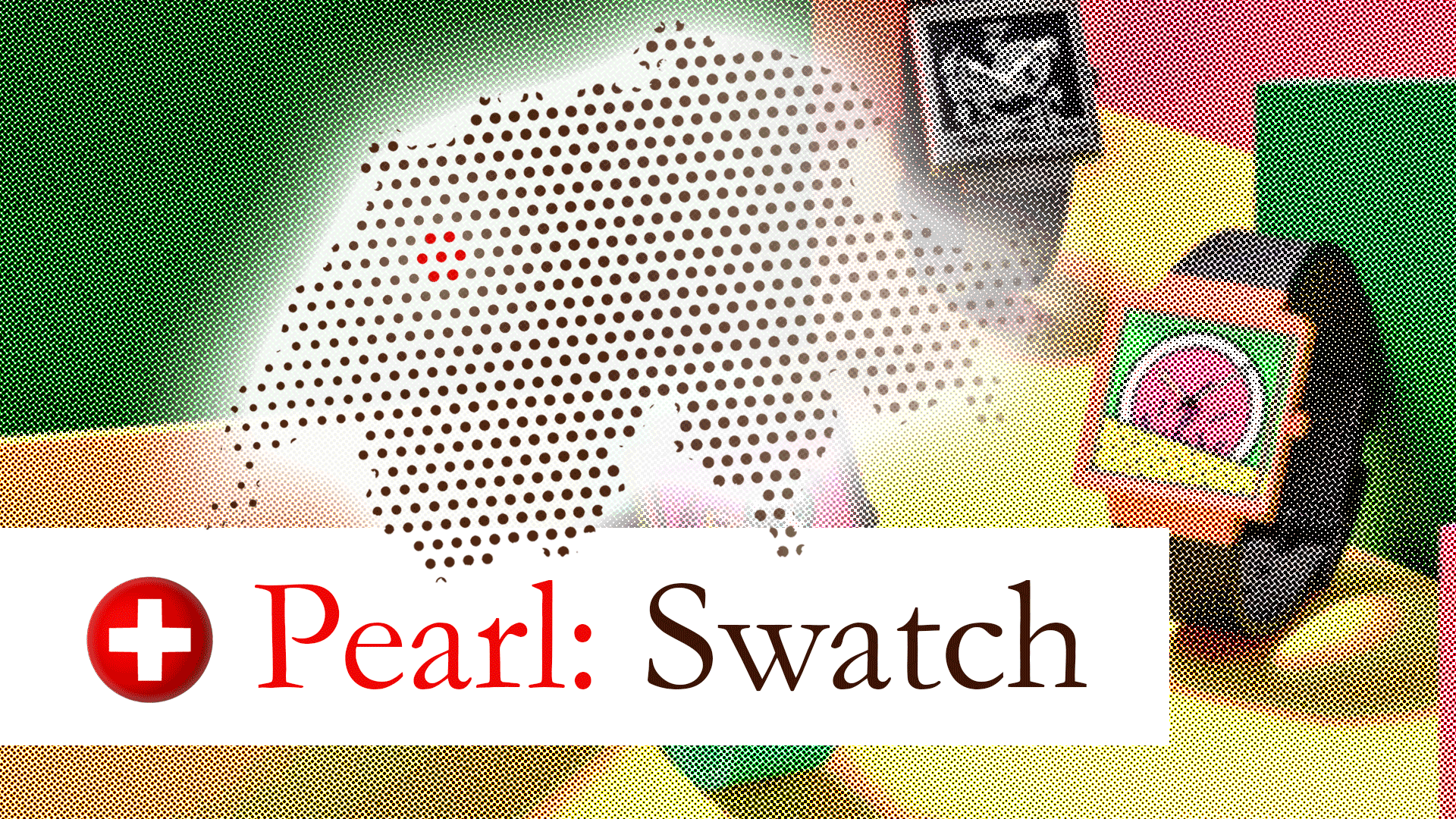The Swatch Group is a Swiss manufacturer of watches and jewellery, founded in 1983. It emerged from the merger of ASUAG and ssIH, two significant players in the Swiss watchmaking industry, at a time when the industry was facing a serious threat from the rise of inexpensive quartz watches from Japan. Swatch's innovative approach not only saved the Swiss watch industry but also revolutionized it.
Swatch played a crucial role in revitalizing the Swiss watchmaking industry during the quartz crisis. By embracing quartz technology and offering high-quality, fashionable watches at affordable prices, Swatch made Swiss watches accessible to a global audience. This not only saved countless jobs but also redefined the narrative around Swiss watches, proving that Swiss craftsmanship could be both innovative and accessible. Swatch is a testament to Swiss ingenuity, resilience, and creativity.
Did you know?
- The name "Swatch" is a contraction of "second watch," reflecting its concept as a casual, fashionable accessory, rather than a single, precious timepiece.
- Swatch watches were initially a technical breakthrough, comprising only 51 parts, compared to the usual 90+ in other watches, contributing to their affordability and reliability.
- Swatch embraced 'watch wardrobing', encouraging customers to buy multiple Swatches to match different outfits and occasions.
- Swatch has a history of exciting collaborations with artists and designers, including Keith Haring and Kiki Picasso, creating highly sought-after and collectible watches.
Swatch Group possesses several key strengths that contribute to its enduring market presence. Firstly, the brand "Swatch" itself holds significant global recognition, representing fun, accessible, and stylish timepieces. Secondly, the company's diverse portfolio, encompassing brands from entry-level Swatch watches to high-end names like Omega and Breguet, allows it to cater to a broad spectrum of consumers. Furthermore, their vertically integrated production process, which controls everything from component manufacturing to finished product assembly, ensures consistent quality and operational efficiency. Finally, Swatch's commitment to innovation, demonstrated through developments like the System51 and its ventures into smart technology, keeps the brand relevant in a rapidly evolving market.
Despite its strengths, Swatch Group faces notable challenges. A significant weakness lies in its heavy reliance on traditional watch sales. While the company has explored smartwatches, its core business remains rooted in conventional timepieces, which are increasingly challenged by smart devices. Additionally, the luxury watch market is susceptible to economic fluctuations and shifting consumer preferences, resulting in potential revenue volatility. Swatch also operates in a highly competitive market, facing pressure from both established watch brands and emerging tech companies in the wearable technology sector.
While Swatch Group has experienced a decline in profits in 2024 and a drop in revenue, particularly within the Chinese market. To grow revenue in 2025, the company is focusing on growth in markets outside of China, including the United States, Japan, India, and the Middle East. Swatch expects a positive outlook in 2025, driven by new product launches and a strong global market presence.
Learn more about the Obermatt Swiss Pearls Index (ticker: OMSP1)
